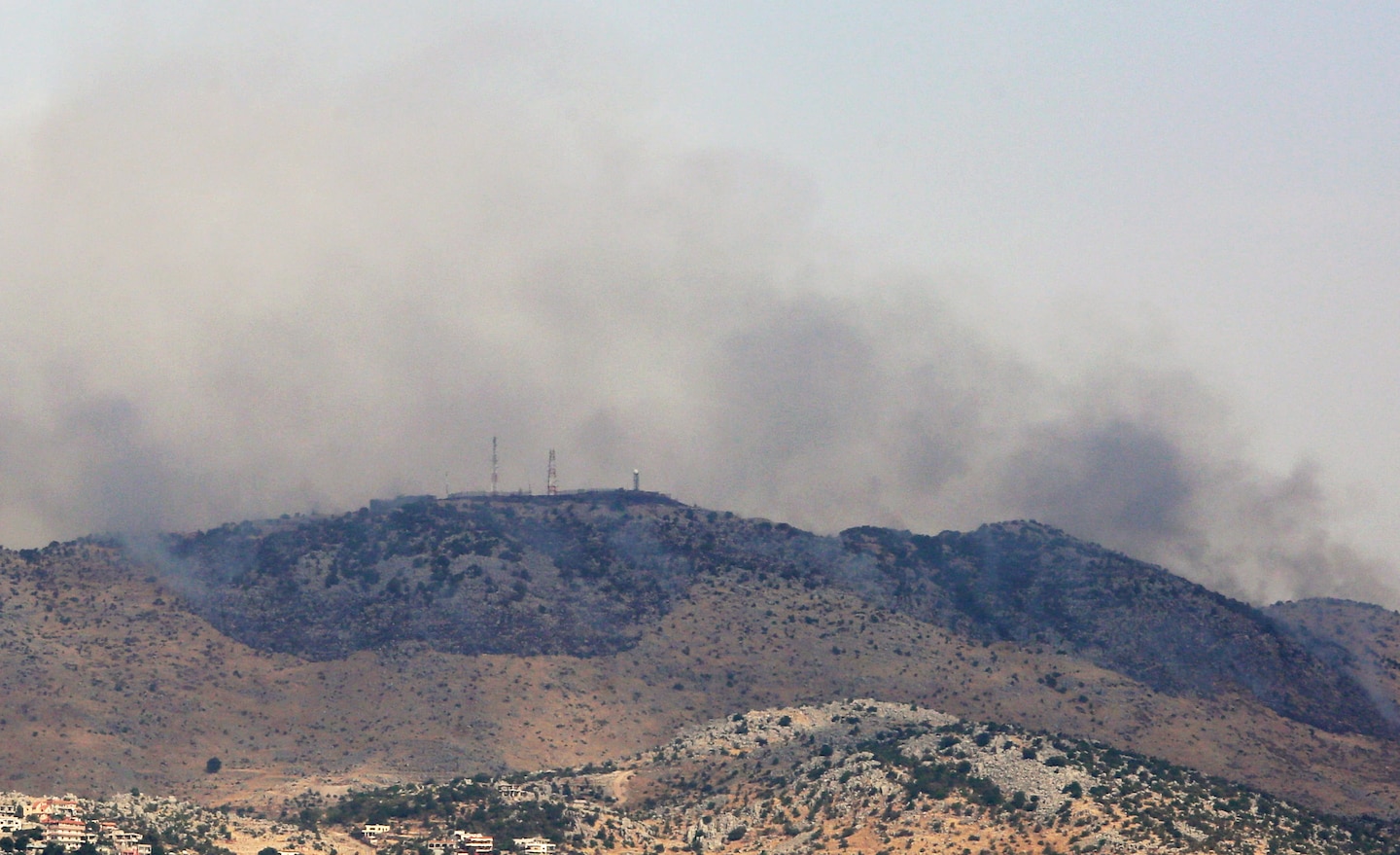Israeli says it repelled incursion from Lebanon; Hezbollah denies launching attack

In a televised address, Netanyahu said Hezbollah leader Hasan Nasrallah was “embroiling Lebanon” at the behest of Iran.
“Hezbollah needs to understand that it is playing with fire,” Netanyahu said. “Any attack against us will be met with great strength.”
The skirmish followed a week of rising tensions and provocations, including an airstrike attributed to Israel that killed a Hezbollah fighter in Syria and to which the group has vowed to respond. The U.N. Interim Force in Lebanon said it was in contact with both sides and would launch an investigation to determine the cause of Monday’s incident.
Hezbollah is both an armed group and a political party in Lebanon. Israel views it as a dangerous regional proxy operated by its archenemy Iran; both Israel and the United States have designated it a terrorist organization.
Lt. Col. Jonathan Conricus, an Israeli army spokesman, said the flare-up was sparked by an “infiltration attempt by a terrorist squad that crossed the Blue Line by a few meters.” The Blue Line was drawn by the United Nations in 2000 to confirm an Israeli troop withdrawal from southern Lebanon.
Conricus said that the group was monitored by Israeli army field observers and that the “infiltration was successfully thwarted.” No Israeli or Lebanese casualties were reported.
“The terrorists retreated back to Lebanon,” Conricus said. “We have no information if any of the perpetrators were wounded or killed.”
Israeli television showed large plumes of smoke rising over the border area that the Israelis call Mount Dov and the Lebanese call the Shebaa Farms. Hezbollah’s Al-Manar television channel said Israeli shelling continued for an hour until around 5 p.m.
The Israel Defense Forces (IDF) identified the fighters as a Hezbollah cell, but there were doubts in Lebanon: Hezbollah does not shy from claiming its operations or losses. As hours passed and the group did not release a statement, local media channels, including Al-Manar, called on it to clarify what had happened.
Hezbollah eventually issued a statement denying carrying out an operation in Israel. The group said it did not fire anything into Israel but had received fire.
Hezbollah said Israel’s claim of “foiling an infiltration operation” was “an attempt to invent false and fantastical victories.” Its media office did not respond to a request for comment.
Israeli media initially reported the clash had been sparked by a Hezbollah-fired rocket aimed at an Israeli army tank. Conricus said there was no information of an antitank missile being fired at an Israeli army vehicle.
The Israeli military instructed residents living along the Israeli side of the Blue Line to stay in their homes. Agricultural work and tourist activity was suspended, and main roads were closed to nonessential traffic. Civilian life has since resumed.
Tensions between Israel and Hezbollah are not new — the two fought a bitter war in the summer of 2006.
Netanyahu said Israel is “constantly monitoring what is happening on our northern border.”
“Our policy is clear,” he said. “First, we will not allow Iran to entrench militarily on our border with Syria. Second, Lebanon and Hezbollah will bear the responsibility for any attack against us emanating from Lebanese territory. Third, the IDF is prepared for any scenario. We are active in all arenas for the security of Israel — both close to our borders and far from them.”
A spokesman for the U.N. Interim Force in Lebanon, which patrols Lebanon’s southern border with Israel, said the head of mission, Maj. Gen. Stefano Del Col, “has been in contact with both parties to assess the situation and decrease tensions, urging to use maximum restraint.”
Spokesman Andrea Tenenti said an investigation would be launched to clarify what prompted the incident.
The clash Monday came less than a week after a Hezbollah fighter was killed in an airstrike on pro-Iranian militants in Syria, an attack attributed to Israel. Israeli officials do not comment publicly on operations in Syria. They say their goal is to stop Iranian expansion and threats in the country, which borders Israel to the northeast.
In its statement Monday, Hezbollah said its response to the killing of the fighter “is definitely coming.”
At the funeral last week, Hezbollah lawmaker Hassan Ezziddine called the fighter a “martyr” and emphasized that the fight would continue, “even if martyr after martyr fell.”
Israeli violations of Lebanese airspace have increased in recent weeks, with frequent flights over the country to conduct operations in Syria and return. Hezbollah helps prop up Syrian President Bashar al-Assad.
On Friday, the Israeli army said that it responded to munitions fired toward the Israeli Golan Heights from Syria by striking military targets in that country. A Syrian war monitor reported that five foreign fighters were killed and several were wounded.
Twenty Israeli drones violated Lebanese airspace Friday, the Lebanese Armed Forces said, and there were at least nine more violations Saturday. The army said it was coordinating with the U.N. force.
On Sunday, an Israeli drone fell in southern Lebanon, the IDF said. Later Sunday, Hezbollah’s deputy leader said a war with Israel was unlikely.
“The atmosphere does not tell of a war happening, in light of internal Israeli confusion and Trump’s fall [in polling] inside America, and the Israelis cannot guarantee winning any war,” deputy leader Naim Qassem said. He said he doubted there would be war with Israel in the coming months.
Lebanese Prime Minister Hassan Diab said he canceled meetings Monday to address the clash in the south.






